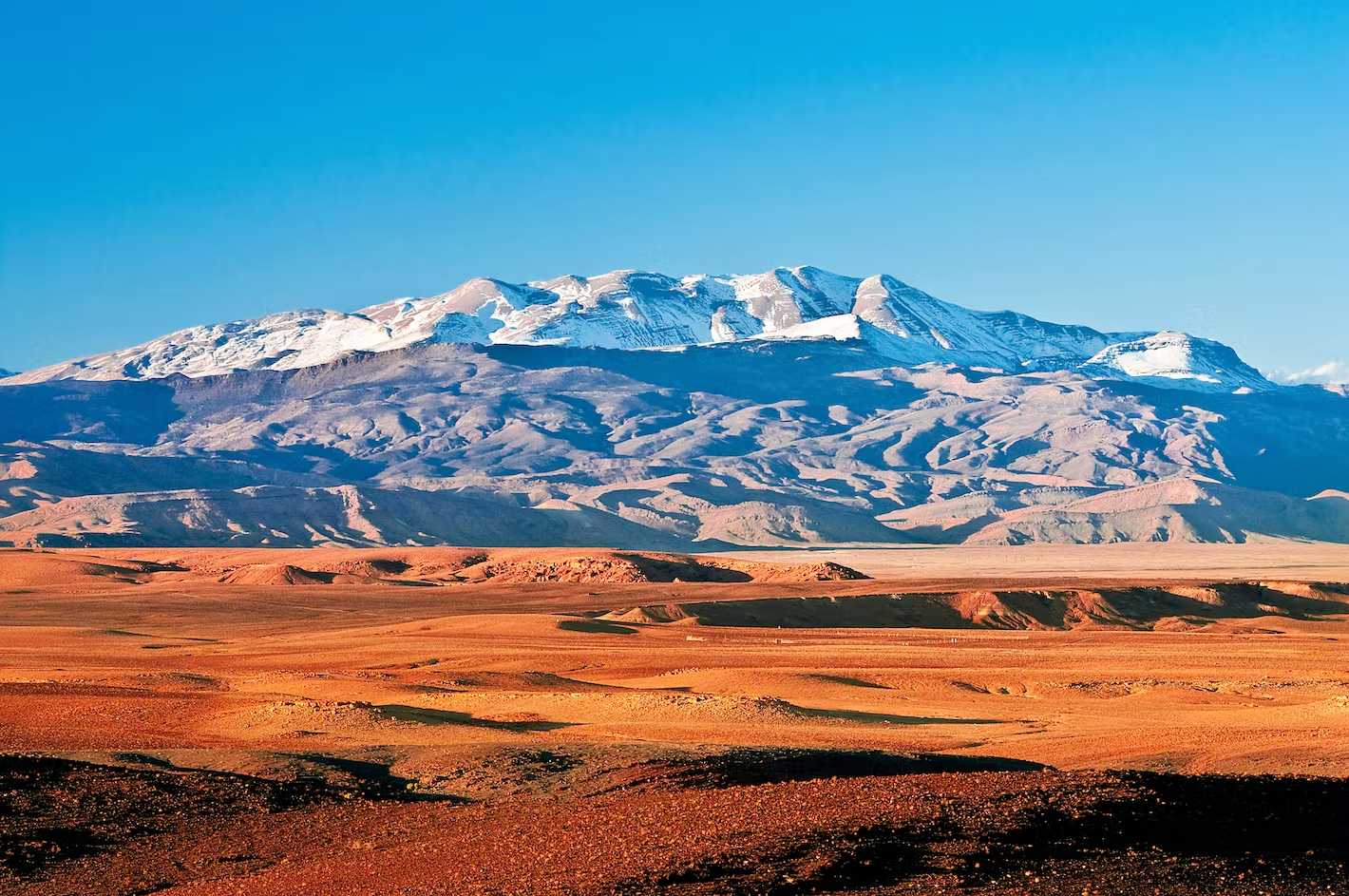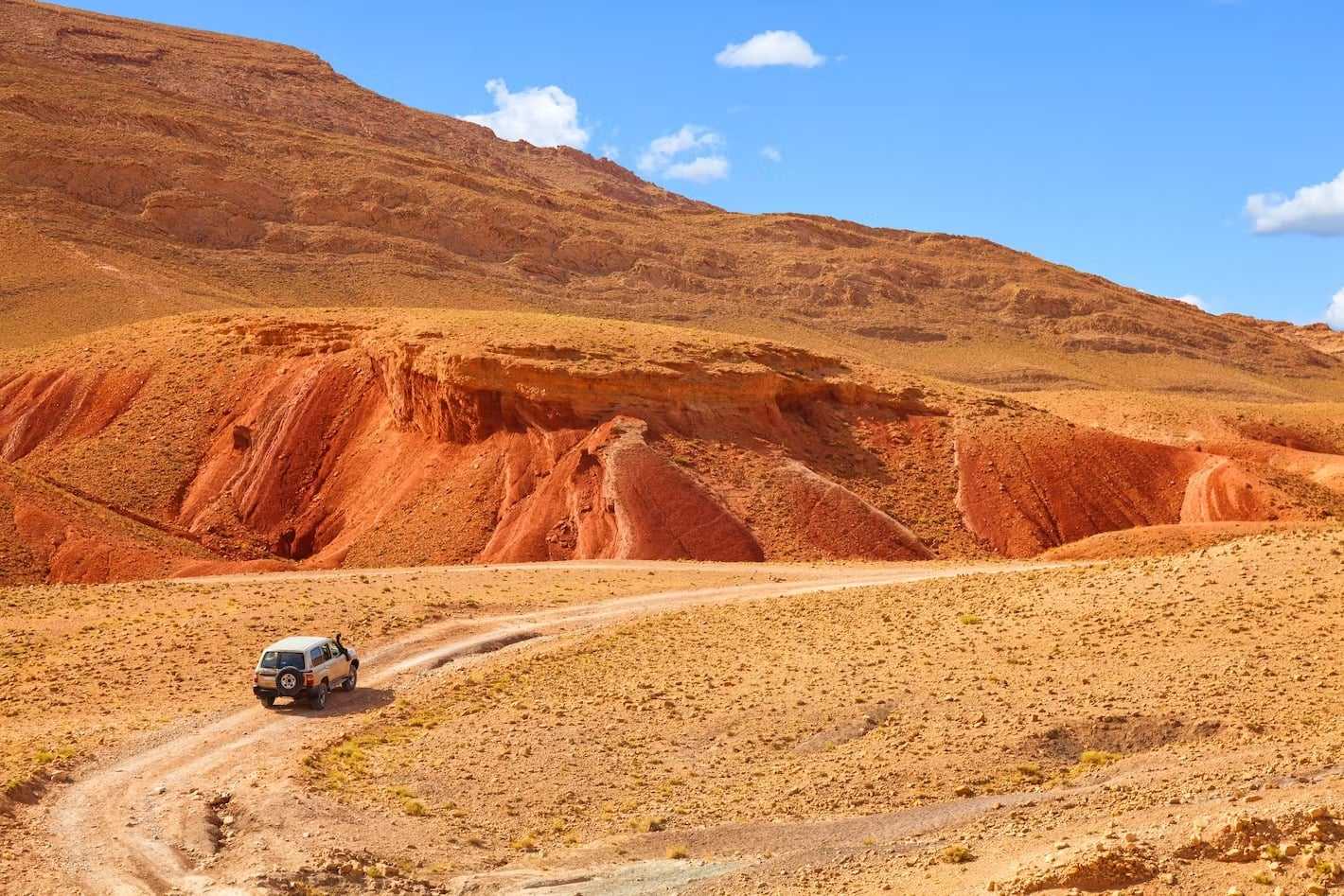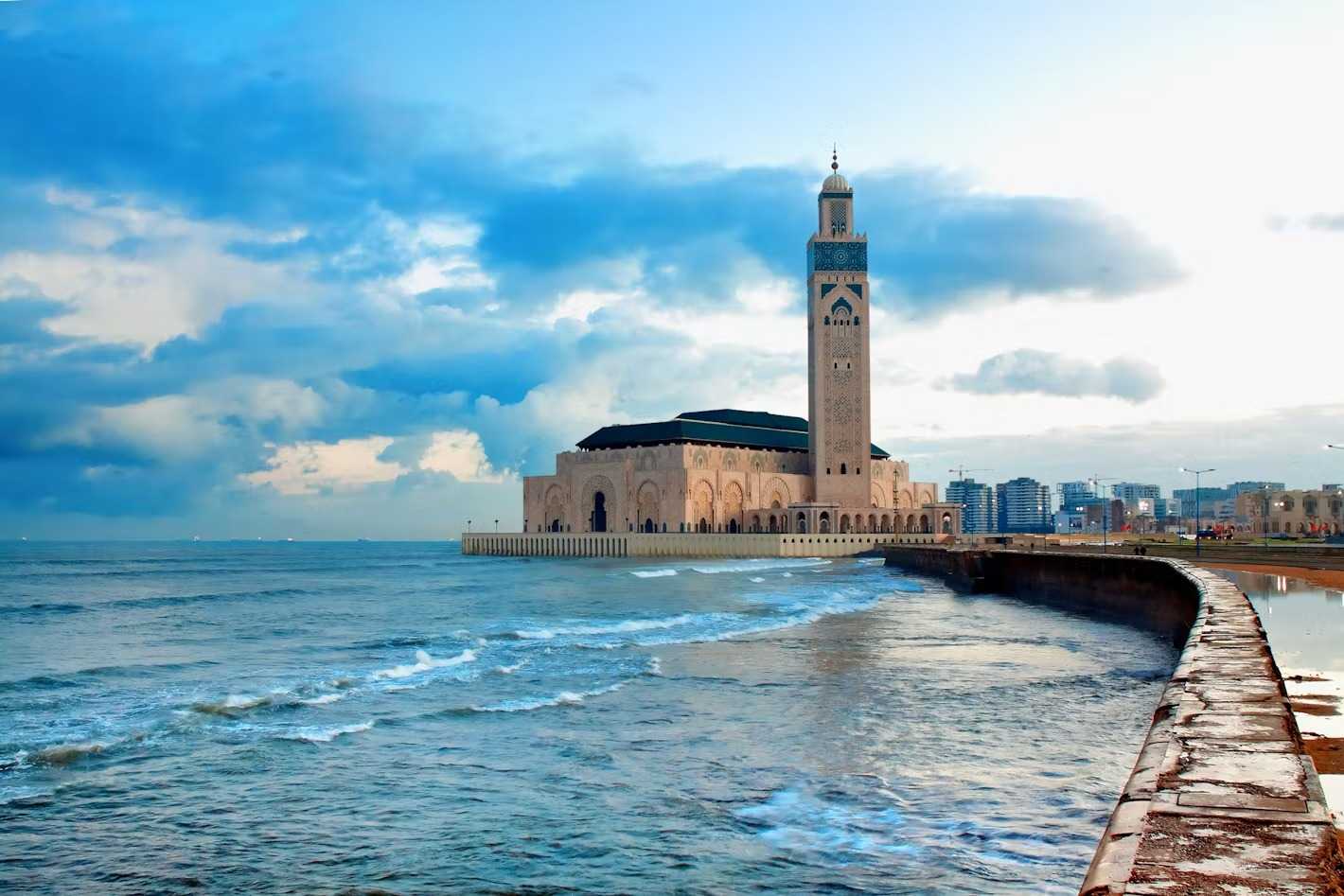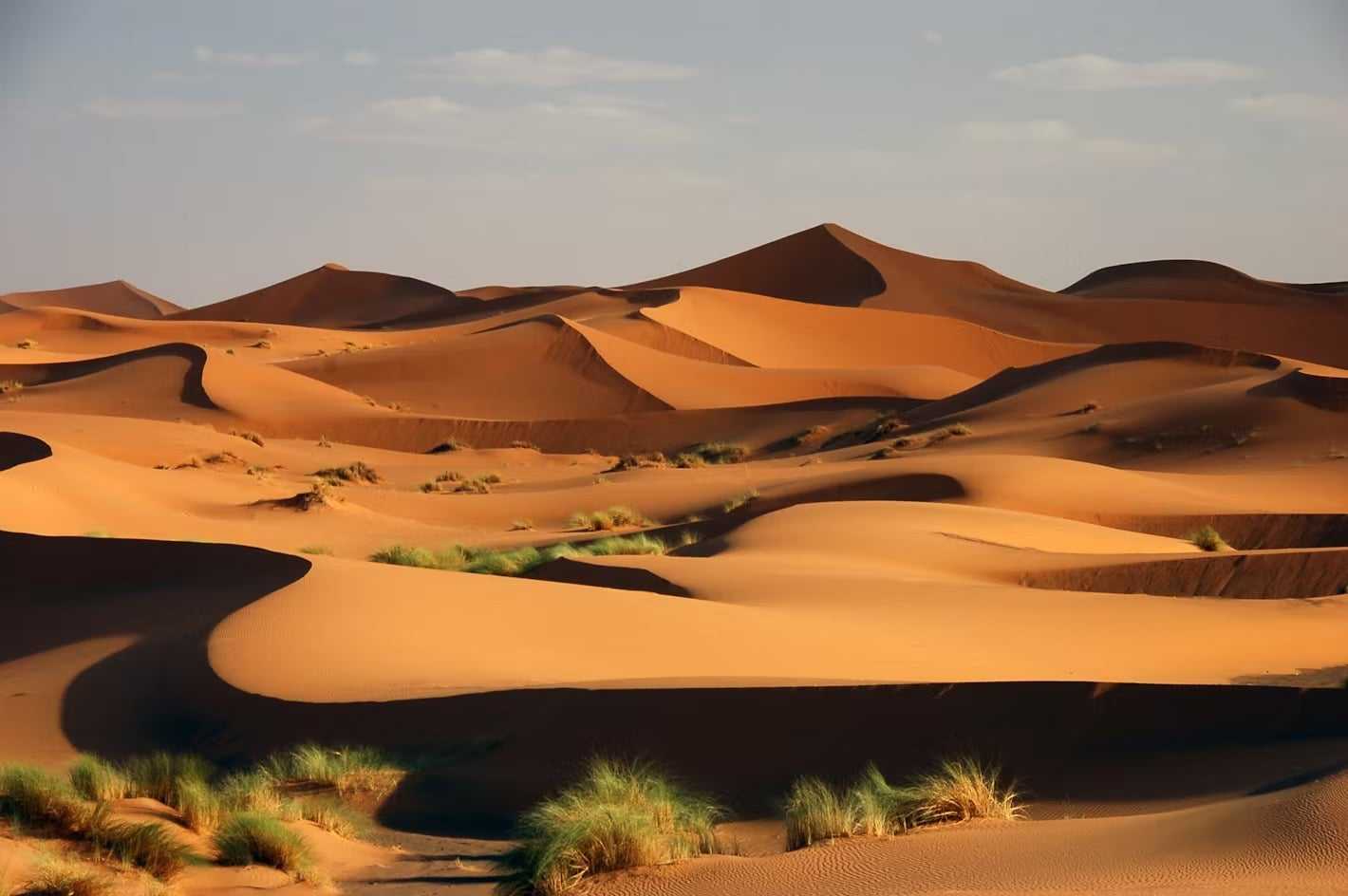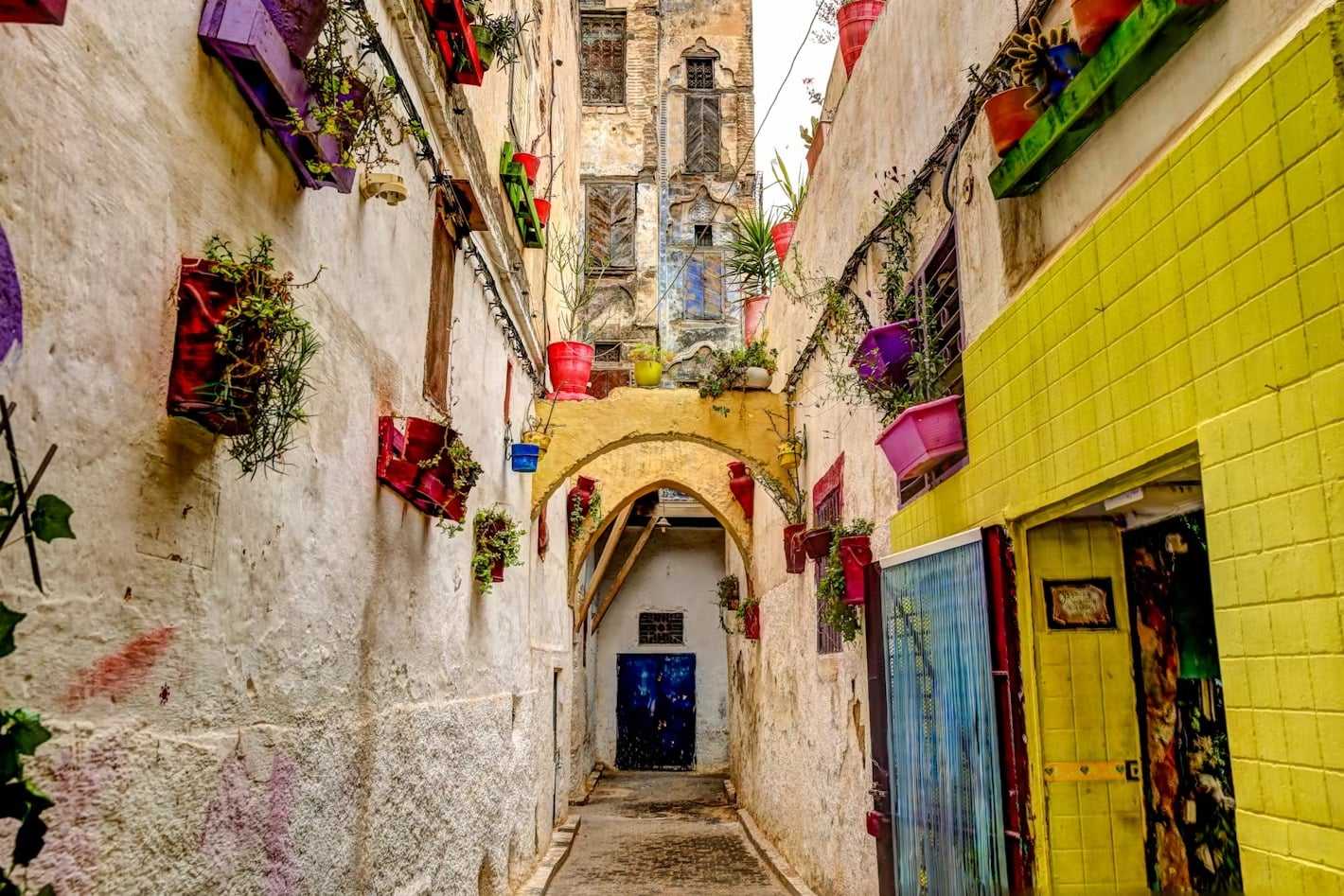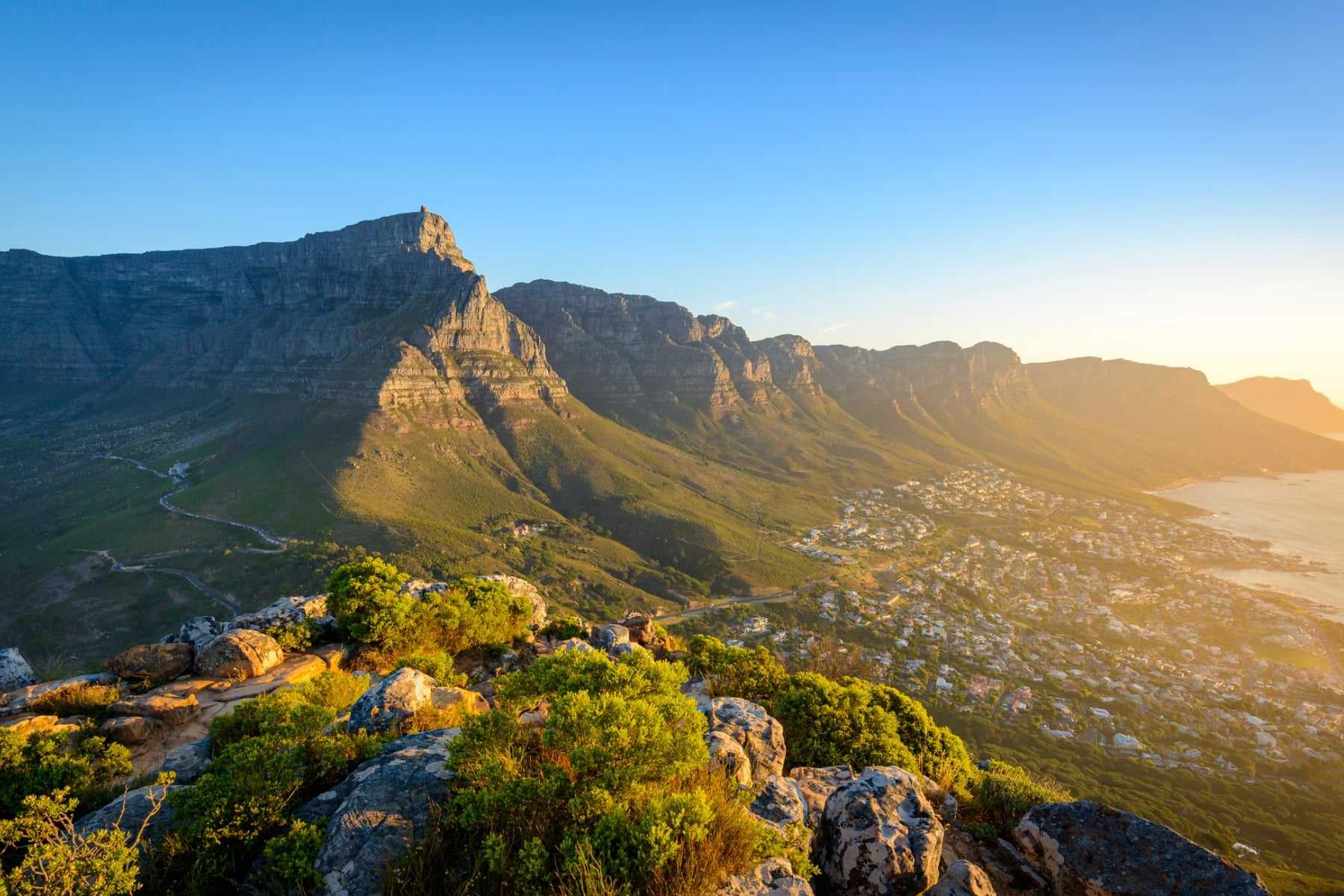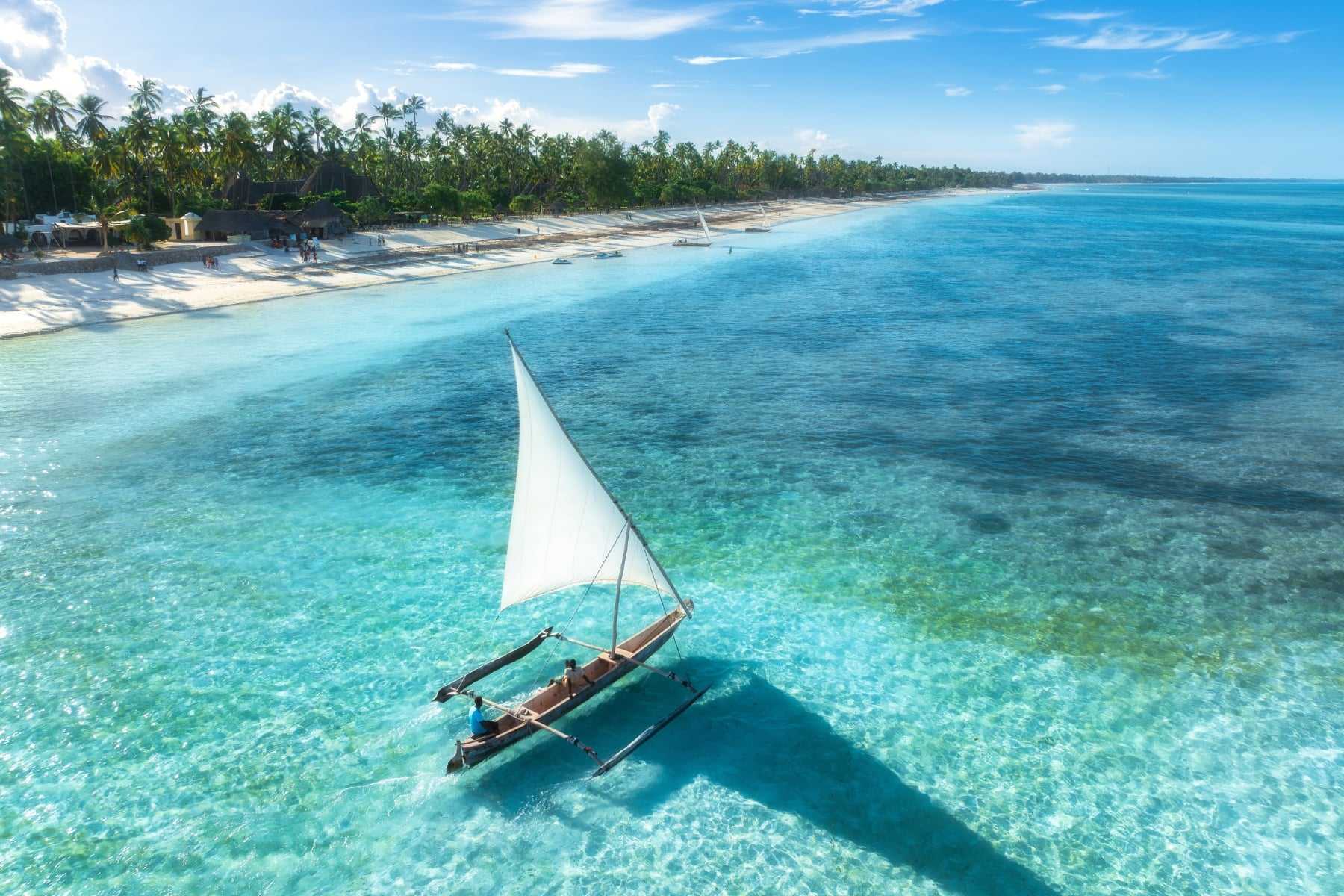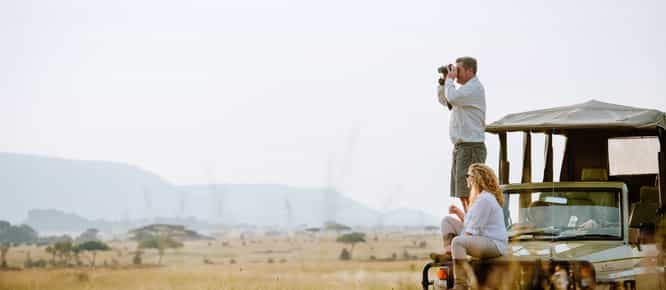The old cliché of Morocco may imply that it’s perpetually hot and sticky, but the country and its landscapes (and weather!) are far more diverse. The ideal time to visit Morocco depends on what you plan to do, be it skiing in the High Atlas Mountains to beach days beside the Atlantic or Mediterranean, camel trekking in the desert to strolling through the endless medinas – and below is all you need to know to decide on the best time to visit Morocco.
March to May
Spring arrives in Morocco in March, thawing mountain trails and setting hillsides abloom with colour. At the beginning of March, there might still be some showers around, but it’s the perfect time to enjoy a trip to the Atlas Mountains: soak up the views from a luxurious kasbah and set off on foot or horseback to explore the escarpments and valleys, go river rafting or swim below the Setti Fatma falls, and share a cup of mint tea in a local Berber village. April and May brings Ramadan, resulting in some very busy cities – and probably best to avoid the medinas of Marrakesh and Fez. The Moroccan Desert is temperate at this time of year, making adventurous days amongst the dunes and palm groves extremely pleasant, and the usually barren Agafay Desert is carpeted with wildflowers. You can’t go wrong with a scenic hot air balloon ride from the mountains to the desert either. Why not experience the best of both worlds on our luxury Moroccan escape?
June to August
As you might have guessed, Morocco’s deserts are almost unbearable during the summer months so the coast is a firm favourite for locals and tourists alike. Essaouria and Tangier are particularly lovely, and you can dive straight into all manner of watersports including kite, wind and regular surfing, and paddleboarding – or simply meander along the beach on horseback. On dry ground, be inspired by the arts scene in both places, perusing the galleries and souks that brim with textiles and pottery. In Casablanca, enjoy the breeze from the Atlantic at this time of year, and absorb the history of the city on a walkabout through the streets. If you can cope with the heat, the Atlas Mountains remain beautiful and early-morning walks are idyllic, before heading to a hammam for the afternoon. Combine a few days in the mountains and the Atlantic coast with this trip.
September to October
Autumn brings clear skies and cooler temperatures to Morocco, making the deserts attractive once again. Fill your days with camel trekking, dune buggy rides and canoeing in oases, or discover ancient cities with a fascinating history. There are fewer locals on the beaches so a visit to Tangier’s Mediterranean coast and intriguing kasbah could be very tempting. the Atlas Mountains still offer spectacular trekking before the snow sets in, and the charming ‘blue city’ of Chefchaouen is ripe for a stroll either through the artisanal markets or into the foothills of the Rif Mountains. October is one of the best months to visit Morocco so bear in mind that hotels should be booked well in advance. Take advantage of the cooler weather on this trip, from Fez’s head-turning medina and the Atlantic coast to Morocco’s sand seas.
November to February
The Moroccan Desert is picturesque and temperate during the winter months – although it’s best to pack warmly for nights spent stargazing. This is also a fantastic time to visit Marrakesh with lower temperatures that make sightseeing a delight. Visit the Yves Saint Laurent Museum and 12th-century Koutoubia Minaret, the city’s stunning gardens and palaces, and the famous Djemaa el-Fna Square for the very best Moroccan cuisine. Fez is slightly more complicated: summer means no rain but winter means far more pleasant days for exploring the alleys, tanneries and souks of the ancient medina. If you’re an avid skier, January and February are a fantastic time to visit the Atlas Mountains – but hiking is a no go. Our Morocco in a nutshell trip will take you from colourful Fez to the epic Moroccan Desert and round things off with a whirlwind visit to Marrakesh.
